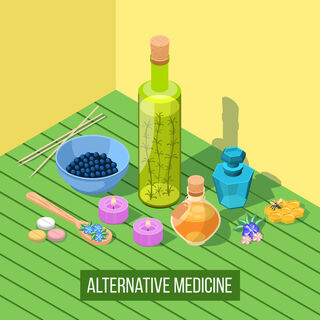Integrative Medicine
The Potential Harm of Alternative Medicine
A leading expert in alternative medicine offers his insights.
Posted December 2, 2020 Reviewed by Devon Frye
It is unfortunately not uncommon for evidence-based health care professionals to encounter patients who have received pseudoscientific therapies to address their addiction and mental health concerns. Pseudoscientific therapies are harmful in at least three ways: they can directly produce harm, they indirectly deprive time and financial resources from supported treatments, and they can further erode the foundations and trust in scientific professions that employ their use.
Nevertheless, pseudoscientific therapies are widely used and promoted for all ailments, including COVID-19, often under the guise of the false dichotomized term, “alternative medicine.” In this vein, I’ve invited a leading expert in alternative medicine, Dr. Edzard Ernst, to offer a snippet of his extensive insights into the potential harm of alternative medicine, especially in the context of its use in the treatment of addiction and mental health.

Dr. Stea: Thank you for agreeing to this brief interview. Your latest book, Don’t Believe What You Think: Arguments for and Against SCAM, is a must-read for those interested in critical thinking about health decisions. You’ve written several books. What inspired this one?
Dr. Ernst: Thanks for the compliment. I am actually not sure what inspired it. I write something or other almost every day—a post for my blog, or a chapter for a book, or an article for a journal. And while I do this kind of work, I have plenty of ideas for new books. Most of them never mature into an actual project; but this one somehow did. I am glad you like it.
Dr. Stea: In your book, you note that there are many motivations that can drive purveyors of alternative medicine. You mention one that is reminiscent of a savior-complex that is particularly ideologically possessed, robust to counterevidence, and an impetus to the spread of health-related misinformation. Specifically, you write “Delusion could be another motivator. Delusional SCAM providers believe themselves to be on a mission to heal or to rid the world of conventional medicine.” What is your experience with this particular motivation?
Dr. Ernst: I should mention that I use the term “SCAM” as an acronym for “so-called alternative medicine”—because, whatever it is, it’s never a true alternative to anything. The SCAM practitioner on a mission is a very prevalent phenomenon. I must have met hundreds of them.
It started with my very first job as a junior doctor. That was in a homeopathic hospital, and there, almost everyone was on a mission. Such clinicians form the backbone of SCAM. They are so convinced themselves that patients fall for almost every nonsense they offer. They tend to be full of good intentions, and this makes them probably the most dangerous type of SCAM provider. Bert Brecht once wrote: The opposite of good is not evil, but good intentions.
Dr. Stea: As a clinical psychologist who treats people with concurrent addictive and psychiatric disorders, it is horribly disconcerting to me when people present for treatment and tell me they’ve never received evidence-based treatment for their post-traumatic stress disorder (PTSD), obsessive compulsive disorder (OCD), etc. Instead, they’ve unethically received pseudoscientific and alternative therapies, such as past life regression therapy, Reiki, etc. Can you tell us about the potential harm of using alternative therapies to treat addiction and mental health concerns?
Dr. Ernst: Yes, take Reiki as an example; people imagine that no harm can be done with a bit of hand waving by a Reiki practitioner. Sadly, that’s not true. If such a practitioner is convincing and charismatic, they will easily convince seriously ill patients that Reiki is the optimal approach. Thus, they might forfeit all effective treatments. This can have very serious consequences; in a worst-case scenario, it hastens death. And then folks say that SCAM is harmless! This makes me angry.
Dr. Stea: Do you have any final thoughts about the relationship between pseudoscience and alternative medicine?
Dr. Ernst: One thing that is currently promoted as the best thing since sliced bread is the addition of some pseudoscience to real science under the umbrella of "integrative medicine." To many decision-makers in healthcare, this looks harmless, promising, and sounds politically correct when misleading rhetoric is used: "best of both worlds," "holistic," "patient-centered," etc.
The truth is that integrative medicine is just another attempt to create a smokescreen behind which SCAM enthusiasts try to smuggle unproven or disproven therapies into routine healthcare. The result is not that patients receive better care, but that evidence-based medicine is being undermined. As Dr. Mark Crislip rightly said, mixing some cow pie into apple pie is not going to improve the taste of the latter.


